Implants
Your specialist for implants
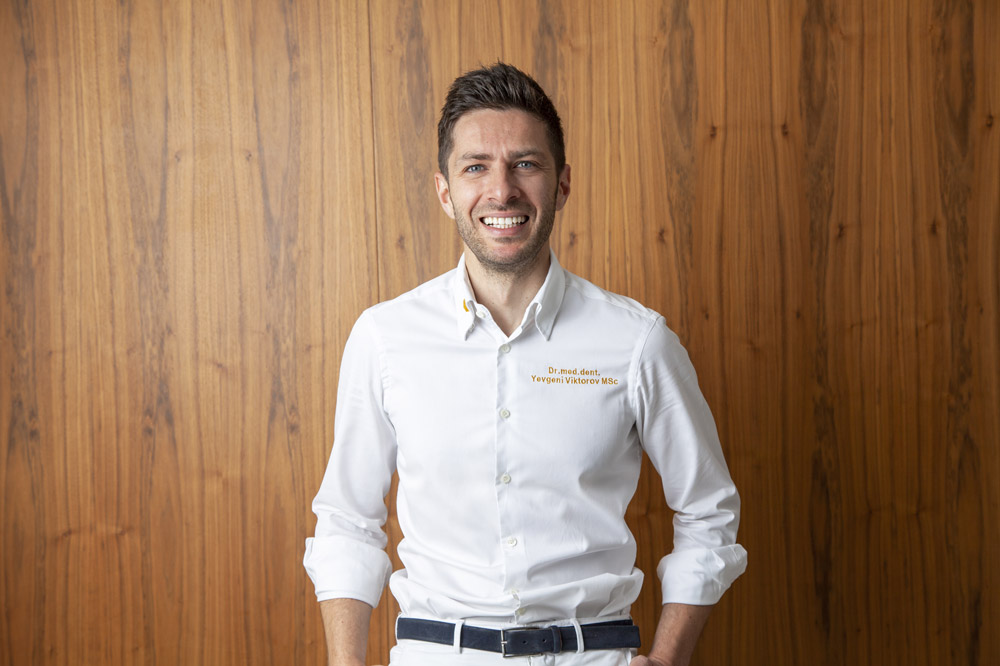
Dr. med. dent. Yevgeni Viktorov, MSc
Master of Science in Periodontology and Implantology. DGParo specialist in periodontology (gum specialist)
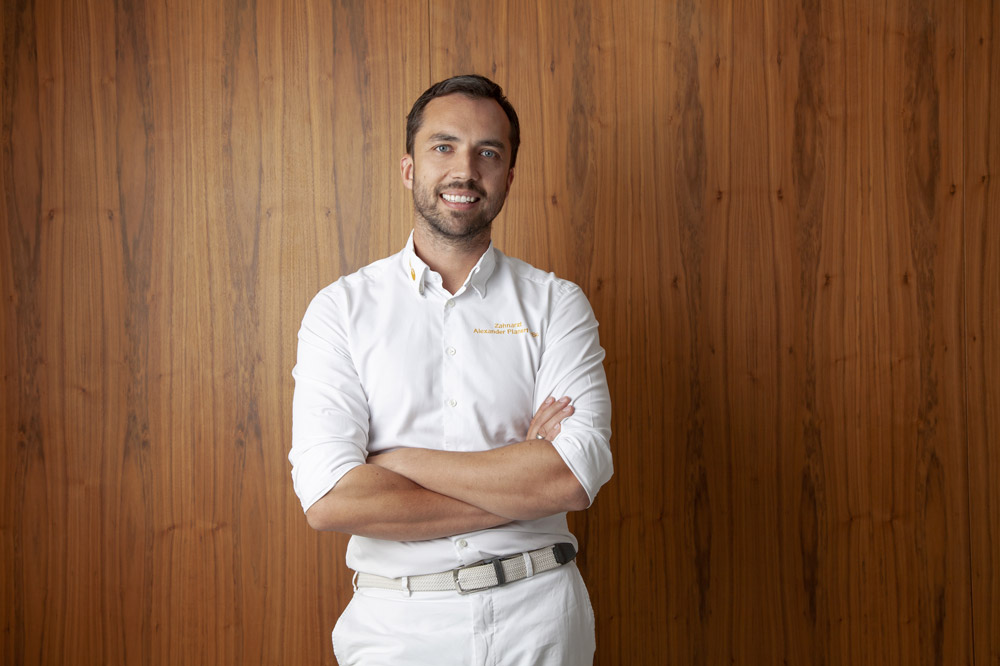
Dentist Alexander Planert, MSc
Dentist and Master of Science in Implantology and Master of Science in Oral Implantology & Periodontology.
„Implants should replace missing teeth, not teeth!“
Perfect diagnostics, prosthetically orientated planning and a gentle surgical approach are required to ensure that an implantation is successful. These components come together to form a consistent treatment concept and are the key to long-term success.
In our eyes, implantology is not a stand-alone discipline. It is only conceivable embedded in a well-founded periodontological-prosthetic concept. For this reason, our implanting specialists, Dr Viktorov and Mr Planert, originally come from the fields of periodontology and prosthetics.
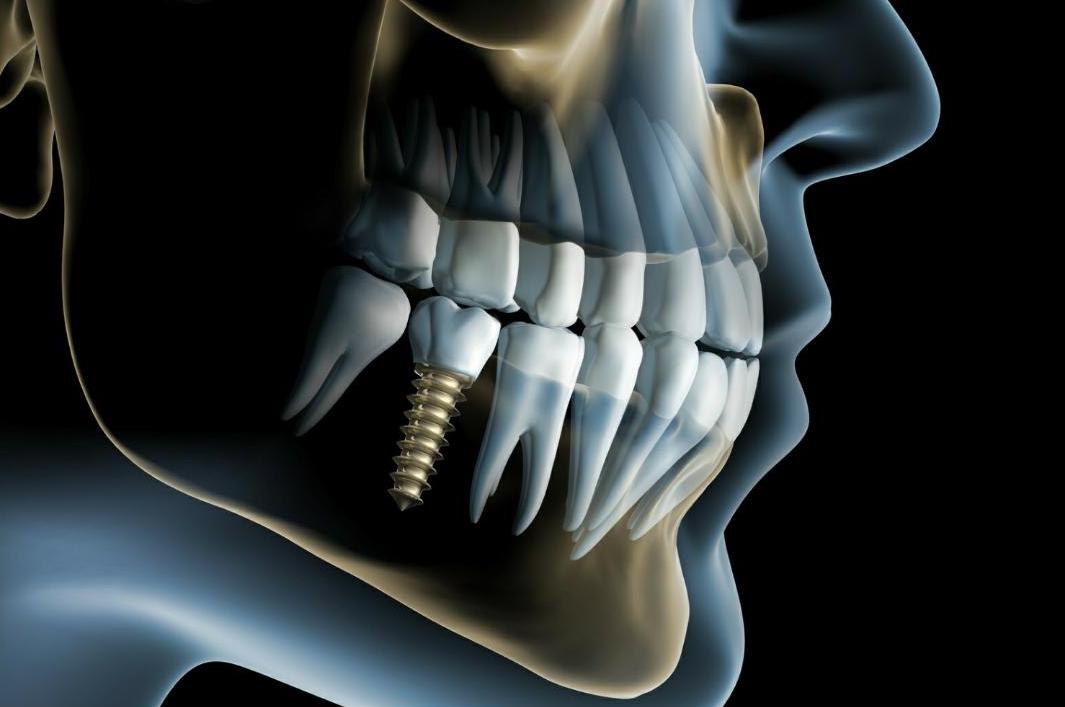
What is an implant?
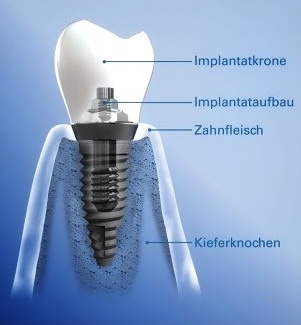
Unfortunately these cases are very rare. Usually the dentist needs to regenerate bone and gum structure first to create a perfect field for the implant. Fortunately, many predictable methods are already available today. Our specialists have undergone many years of training in this area, so they are already passing on their extensive knowledge in this field to other dental colleagues.
As periodontists, Dr Viktorov and Mr Planert pay particular attention to the gums around the implants during implantation. This is the decisive factor for the aesthetic success of an implant in the anterior region, but also one of the most important prerequisites for an inflammation-free situation at the implant in the posterior region.
Placement of an implant
to 1
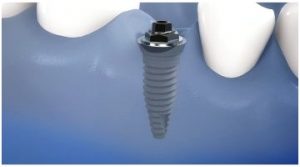
kzbv.de
The gums are cut open, a hole is drilled into the jawbone and the implant is then screwed in. It connects directly to the bone on the upper side and disappears under the gums after the operation. There it heals in the bone for around 3 months.
to 2
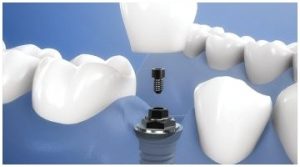
kzbv.de
After healing, the gum is opened again (exposure) and an abutment is screwed into the implant. The crown or bridge is then attached to this.
Video animation – Implantation procedure
Video animation – Comparison of dental implant and dental bridge
Durability of implants
What is peri-implantitis?
As your implants can develop periodontitis (in this case peri-implantitis) just like your own teeth, it is important to pre-treat the neighbouring teeth with periodontitis therapy before implantation if necessary – and to ensure that no new inflammation develops on the implants after implantation with regular prophylaxis/tooth cleaning.
However, if peri-implantitis does occur, we unfortunately do not yet have any scientifically sound findings on treatment. In each individual case, we will decide together with you whether peri-implantitis is treatable and whether it makes sense to preserve the implant, which is our primary goal. A range of surgically resective or regenerative treatment options are possible, which we will be happy to discuss with you in detail.
Importance of implantology
“Despite all the advances in implantology, an implant is a dental prosthesis and not an alternative to real teeth,” according to patient information from the German Dental Association. “Your own, natural and healthy tooth is and remains the best treatment!”
Patient OPINIONS
Great doctor
Thorough diagnosis; honest recommendation not to carry out the planned special treatment in my case, thus saving me unnecessary treatment costs.
Friendly and competent
I felt safe and in good hands from the very first moment. Dr Planert took the time to answer my questions and explained everything clearly.
Outstanding!
I am completely satisfied! Very courteous reception... Advice and treatment at a very high level. Can recommend Leipziger14-Ihre Zahnärzte and Mr Planert with a clear conscience!"
Great doctor
Thorough diagnosis; honest recommendation not to carry out the planned special treatment in my case, thus saving me unnecessary treatment costs.
Outstanding!
I am completely satisfied! Very courteous reception... Advice and treatment at a very high level. Can recommend Leipziger14-Ihre Zahnärzte and Mr Planert with a clear conscience!"
Friendly and competent
I felt safe and in good hands from the very first moment. Dr Planert took the time to answer my questions and explained everything clearly.

